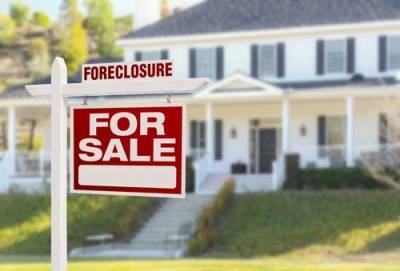Options for Homeowners as the Foreclosure Moratorium Ends
 During the COVID-19 pandemic, many Americans have faced financial difficulties, causing them to be unable to pay some of their debts and ongoing expenses. To prevent people from losing housing during a public health emergency, the federal government and multiple states have implemented a moratorium on foreclosures for certain types of mortgages, preventing lenders from repossessing people’s homes. While the federal foreclosure moratorium has been extended several times, it is currently set to end on June 30, 2021. Because of this, homeowners who have defaulted on their mortgage or who are struggling to make payments will need to understand their options for avoiding foreclosure.
During the COVID-19 pandemic, many Americans have faced financial difficulties, causing them to be unable to pay some of their debts and ongoing expenses. To prevent people from losing housing during a public health emergency, the federal government and multiple states have implemented a moratorium on foreclosures for certain types of mortgages, preventing lenders from repossessing people’s homes. While the federal foreclosure moratorium has been extended several times, it is currently set to end on June 30, 2021. Because of this, homeowners who have defaulted on their mortgage or who are struggling to make payments will need to understand their options for avoiding foreclosure.
Mortgage Forbearance and Loan Modifications
Once the foreclosure moratorium ends, lenders may begin foreclosure proceedings against those who have defaulted on their mortgages. Some lenders have stated that they have halted all foreclosure activities until the end of 2021, while others may resume foreclosures as early as July of 2021. Homeowners who are behind on mortgage payments may need to take action before the end of the moratorium to ensure that they can prevent the loss of their homes.
Along with the foreclosure moratorium, current federal policies require lenders to allow homeowners to receive a forbearance on mortgage payments for federally-backed loans. This will allow for payments to be paused temporarily while a family is experiencing financial hardship. The deadline to apply for forbearance is June 30, 2021, and a homeowner may receive up to 12 months of forbearance. If a person had already received a forbearance before June 30, 2020, they can receive an additional six-month forbearance, up to a maximum of 18 months.
Payments that are not made during a forbearance period will need to be made up, and homeowners may be able to negotiate with lenders to address these missed payments. For some, these payments may be added to the end of a loan, or the amount paid each month may be temporarily increased after the period of forbearance until the missed payments have been made up.
Homeowners who expect that they will struggle to continue making mortgage payments after a period of forbearance may be able to negotiate loan modifications with their mortgage lender. In many cases, lenders will be willing to work with homeowners to find affordable solutions, such as extending the term of the loan or reducing interest rates in order to lower the amount that a person will be required to pay on a monthly basis.
Contact a United States Foreclosure Defense Lawyer
Those who are facing the threat of foreclosure may have multiple options that will allow them to prevent the loss of their home. By working with an experienced U.S. foreclosure attorney, a person can negotiate with their lender to find workable solutions, or they may be able to eliminate other types of debt through bankruptcy. A lawyer can advise a person of their options and ensure that all documents and paperwork are prepared and filed correctly when addressing issues related to a mortgage or other debts.
Sources:
https://www.abc12.com/2021/06/09/foreclosureeviction-moratorium-expire-3-weeks/
https://www.nationalmortgagenews.com/opinion/sorting-out-the-mortgage-forbearance-and-foreclosure-deadlines
https://www.gobankingrates.com/loans/mortgage/mortgage-foreclosure-freeze-ends-soon-here-are-the-banks-extending-the-moratorium/
















